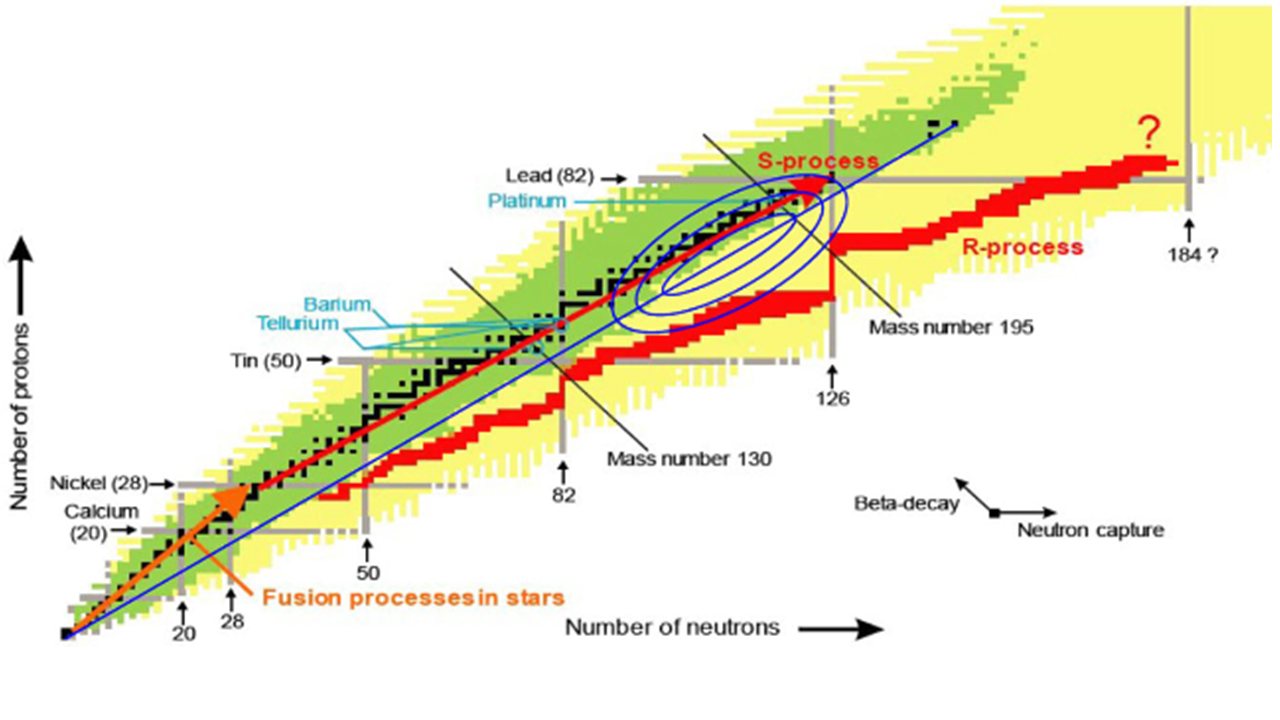Heavy-Ion Acceleration for Nuclear Astrophysics

Understanding the nucleosynthesis of heavy elements in the universe ranges amongst the key topics currently addressed in nuclear astrophysics. ‘Waiting points’ at closed nucleon shells play a crucial role in controlling the reaction rates. However, since most of the pathway of heavy-element formation via the rapid-neutron capture process (r-process) runs in ‘terra incognita’ of the nuclear landscape, in particular the waiting point at N=126 is yet unexplored and will remain inaccessible to conventional nuclear reaction schemes even at next-generation radioactive beam facilities. Laser-induced ion acceleration at upcoming high-power, short-pulse laser systems (like ATLAS3000/CALA in Garching or ELI-NP in Bucharest) will offer the perspective to exploit the unique properties of laser-accelerated ion beams in order to explore the scenario of a new reaction mechanism based on ultra-dense ion bunches. Accelerating fissile species (e.g. 232Th) towards a second layer of the same material will lead to fission both of the beam-like and target-like particles. Due to the close to solid-state density of the accelerated ion bunches, fusion may occur between neutron-rich (light) fission products, thus opening an access path towards nuclides in the vicinity of the N=126 waiting point.In Garching the new high-power, short-pulse laser facility CALA (Center for Advanced Laser Applications) with its ‘workhorse’, the ATLAS3000 laser system (60 Joule/pulse, 20 fs, thus 3 PW laser power with a repletion rate up to 1 pulse per second) will provide excellent opportunities to study and optimize the above outlined new reaction scheme.
Publications:
D. Habs et al., Appl. Phys. B 103, 471-484 (2011)
F.H.Lindner et al., Nucl. Instrum. Meth. B 302, 354-357 (2017)
F.H. Lindner et al., arXiv:2104.14520, submitted to Scientific Reports (2022)
Research coordinator: Peter Thirolf

